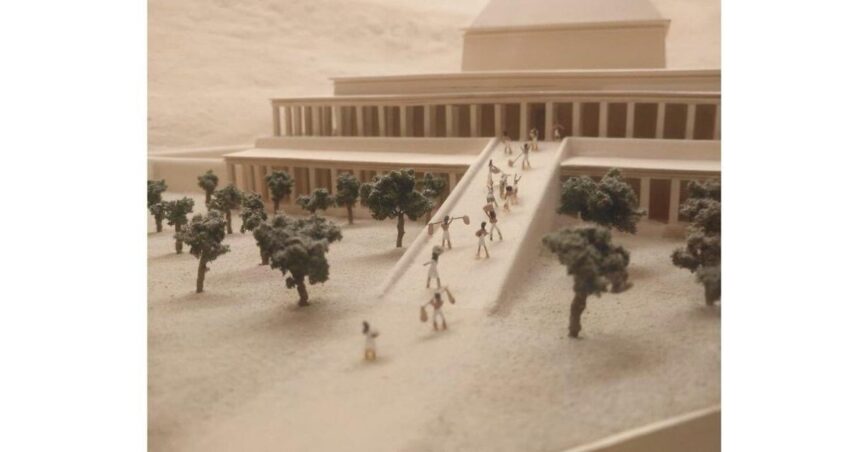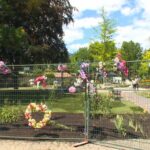The rising chorus of “Lift Every Voice and Sing” floated across the sunlit grounds of Burlington’s Aldershot High School last Tuesday. For twelve-year-old Amaya Williams, this wasn’t just another summer activity – it was a revelation.
“I’ve never been in a place with so many kids who look like me, learning about people who look like us,” she said, adjusting her camp t-shirt emblazoned with the words “Empowered Black Youth.”
The Halton District School Board’s Black Youth Summer Camp has become something of a phenomenon since its launch three years ago. What started as a modest program with 25 participants has blossomed into a comprehensive cultural experience serving over 120 students across the region this summer.
Program coordinator Marcus Johnson stood at the edge of the basketball court watching campers practice a traditional West African dance they’d learn that morning. “This isn’t just about keeping kids busy during summer break,” he explained. “We’re building cultural literacy, academic confidence, and a sense of belonging that many of these students don’t always find in their regular classrooms.”
The free four-week program combines educational components with recreational activities, all centered around affirming Black identity and achievement. Students rotate through workshops on Black history, STEM projects led by Black professionals, art activities exploring African and Caribbean traditions, and athletics.
Parent Kendra Thomas watched her son engage in a science experiment led by a Black engineer from McMaster University. “Living in Georgetown, there are very few Black families in our neighborhood. At school, my son is often the only Black child in his class,” Thomas shared. “Here, he’s making connections and seeing possibilities I simply can’t provide at home.”
The camp addresses a tangible need in Halton Region, where Black students make up approximately 4% of the student population according to the board’s 2021 demographic survey. Many families live in predominantly white communities where cultural representation can be limited.
Dr. Aisha Williams, superintendent of equity and inclusive education for the Halton District School Board, says the camp emerged from community consultation. “Black parents and students told us they needed spaces where their identities were centered, not just accommodated,” she said. “The research shows that students who see themselves reflected in their learning environments perform better academically.”
Recent data from the Ontario Ministry of Education supports this approach. A 2022 report indicated that culturally responsive summer programs resulted in reduced learning loss and increased school engagement for participating students from underrepresented groups.
The daily schedule balances educational enrichment with joy and community building. Mornings typically feature literacy and numeracy activities connected to Black excellence, while afternoons include swimming, basketball, dance, and field trips to cultural sites.
Last Thursday, campers visited the Oakville Museum’s Underground Railroad exhibit, where they learned about Halton’s historical connections to Black freedom seekers who escaped slavery in the United States.
“I didn’t know Black people had such a long history right here where I live,” said fourteen-year-old Jamal Richardson. “We’re always learning about American Black history, but finding out about Canada’s Black communities and their stories makes me feel more connected to this place.”
The program employs Black educators and university students as counselors, providing both employment opportunities and meaningful mentorship. Camp director Natasha Bernard, a teacher at Dr. Frank J. Hayden Secondary School during the regular year, says this representation matters deeply.
“Many of our campers have never had a Black teacher before,” Bernard noted. “Seeing accomplished Black adults leading their learning creates a powerful mirror effect – they begin to envision futures where their Blackness is an asset, not a barrier.”
The camp also serves as a laboratory for teaching practices that could benefit all students during the regular school year. Educators are documenting successful approaches to culturally responsive pedagogy that affirm student identity while meeting curriculum expectations.
Burlington City Councillor Rory Nisan visited the program last week and praised its community impact. “Programs like this strengthen our entire region by nurturing the potential of all our young people,” he said. “When we invest in spaces where every child feels valued, everybody wins.”
The camp isn’t without its challenges. Transportation remains difficult for some families living in Halton’s more rural areas, and organizers are working with community partners to expand accessibility for next summer.
As this year’s session enters its final week, campers are preparing for a culminating celebration where they’ll showcase what they’ve learned through performances, exhibitions, and presentations for their families.
Thirteen-year-old twins Sarah and Samuel Osei are collaborating on a digital storytelling project about Black Canadian scientists. “Before camp, I couldn’t name a single Black Canadian scientist,” Samuel admitted. “Now I know about people like Dr. Eugenia Duodu and Dr. Kaya Persaud, and I’m thinking maybe I could be a scientist too.”
For program organizers, these shifts in self-perception represent the camp’s greatest success. “We’re not just teaching history or math or science,” Johnson emphasized. “We’re nurturing a generation who understands that their Blackness and their brilliance go hand in hand.”
As registration for next summer’s program is already generating interest, the Halton District School Board is exploring how to expand the model to serve more students and potentially extend programming throughout the year.
When asked what she’d tell other kids about the camp, Amaya Williams didn’t hesitate: “I’d say it’s a place where you learn you’re part of something bigger – a history and a future that’s beautiful and strong.”






